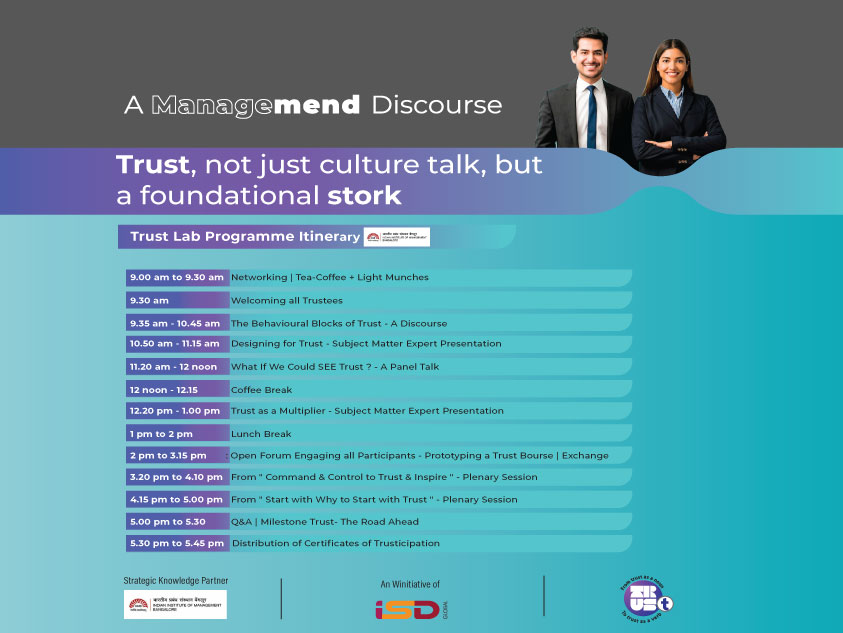Launching a startup and building it is fraught with unforeseen risks. It calls for passion and commitment that extend beyond business goals, according to participants in a panel discussion at the Wharton India Economic Forumheld recently in Philadelphia. Four startup founders spoke about how they began their entrepreneurial journeys, found the right partners, went about raising capital and scaled their businesses. They shared stories of struggles to keep their ventures afloat when failure seemed imminent; battles against gender bias; and threats to work-life balance.
An episode of gender bias that dates back 23 years “deeply influenced” Prasanna Krishnan, founder and chief product officer of SmartyPal, a five-year-old firm in Philadelphia that uses game-based tools and adaptive algorithms to make learning fun, easier and personalized for students. She had that experience during an internship as a software developer at the Bhabha Atomic Research Center in Mumbai, India. Back then, she was the only woman in her department, and her supervisor refused to let her use the restroom, saying it was reserved for men. “I had to walk past two nuclear reactors to get to the administrative building where I could use the ladies’ room,” she said.
More discrimination was in store for Krishnan. At the end of the internship, her supervisor highlighted the contributions of each male colleague but ignored her. Eventually, he turned toward her and said, “Prasanna, when you get married, remember to invite me.” Krishnan recalled that she was only 19 and couldn’t think of a quick retort at that time. “But the lesson it taught me, which I go back to as a startup founder, is there are all these moments when people question you … and it is important to know when to speak up and say, ‘I don’t agree.’”
Cisco chairman emeritus John Chambers noted in a recent Knowledge@Wharton interview that more than 70% of all startups fail. Sometimes, when death seems near, survival might well be within reach if the startup team is enthusiastically involved. That is a lesson that a near-death experience at his startup taught Gautam Tambay, co-founder and CEO of Springboard, a three-year-old firm that provides online education courses in “new economy” skills such as data analytics and AI/machine learning. A couple of years after its founding, Springboard faced a crisis. Tambay and his team realized that though they had a good product and decent user reviews, usage was dropping, revenues were flat or declining, and they had only enough money to survive three months. They determined that their distribution model was flawed, and the only way out of the crisis was to raise more capital. If they failed to do so, Springboard would have to close.
That was when the 20-person team — which was “young and hungry” — took Tambay and his co-founder, Parul Gupta, out to lunch. They said, “We’ve seen the numbers. They are not good, and you must be stressed. Why aren’t you involving us?” Tambay said he was afraid that sharing the firm’s troubles might have led the team to quit. The team members reassured the founders that “they wanted to be part of the story,” which is why they chose to work for a startup like Springboard and not for a big company. “That was one of the biggest lessons, [although]it was counter-intuitive to me at the time,” Tambay said. A more involved team then worked together to revive the firm’s fortunes, he added. He changed his approach from one of being “the umbrella to protect everybody from bad news” to one where “you let the bad news flow as soon as possible, so you get more people working on the problem.” With offices in San Francisco and Bangalore, Springboard has grown since that frightening experience. It has now trained more than 200,000 students in 77 countries.
“I don’t want to be a successful entrepreneur with a broken family.”–Abhay Singhal
Team strength came to the rescue also of a startup founded by Sashi Reddi, managing partner at SRI Capital. The firm is an early stage venture capital fund with offices in Philadelphia and Hyderabad, India, that invests in technology startups in the U.S. and in India. Reddi is a serial entrepreneur having founded four startups, including AppLabs Technologies, a software testing firm that Computer Sciences Corporation of Tysons Corner, Virginia, bought in 2011 for an undisclosed amount.
Reddi said each of the four startups he founded had “a couple of serious horror stories,” as he narrated an experience from his first venture. The firm had come to a point where it had to raise more capital to survive. It had two offers. One was from a financier who promised to buy the firm as soon as it went public, but that meant a three-month wait. The second buyer was ready to close the deal immediately. Reddi’s firm did not have the resources to last three months, so he chose the second offer. The potential buyer completed the due diligence exercise and went on to finalize the necessary documentation. But much to Reddi’s horror, on the day that the transaction was to close, the buyer significantly dropped the price.
“We decided we’d rather go under rather than deal with someone so unethical,” said Reddi. With support from his team, Reddi slogged through the next three months and accepted the first offer. The lesson he learned was that startup entrepreneurs must ensure they have the right “cultural fit” with their financial partners in terms of expectations and the way they do business, he said.
Startup founders who get too involved with their ventures at the cost of their family lives risk other horror stories, according to Abhay Singhal, co-founder and president of advertising cloud at InMobi, a Bangalore-based global provider of cloud based “intelligent mobile platforms” for enterprise marketers. “In the end, you go home to a family. That family is what grounds you as a human being,” he said. “I don’t want to be a successful entrepreneur with a broken family.” He added that, according to one study, “some 60% to 70% of successful founders end up getting divorced.”
Entrepreneurial Bug
Deciding to take the plunge into entrepreneurship and giving up the security of a regular paycheck is the first big challenge startup founders face. Before she began her entrepreneurial journey, Krishnan had worked in business and product development roles at large companies including Microsoft and Comcast, as a venture capital investor, and as an executive at venture-backed startups. “I had seen it being close to the founder, but not being the founder,” she said. For Krishnan, the prime driver was her passion to make an impact in the education space by using technology “to make learning more fun and engaging.” According to her, startup founders must ask themselves if they would pursue their venture even if they knew that they wouldn’t make “significant amounts of money. If that drives you, you will fight all the fights along the way to get to the end point,” she said.
Singhal’s entrepreneurial journey began in 1999 when he was a student at the Indian Institute of Technology in Kanpur where he won a business plan competition. He pursued his idea for seven years with little success before launching InMobi. “There’s no entrepreneurial gene in my family remotely,” he said, citing his middle-class upbringing; his father was a bank executive and his mother a homemaker.
“I had zero risk. The only risk was – what would my parents think about it? But that was manageable.” The security of a job could be compelling, he noted. “For all of us who think entrepreneurs are these geeky, rich people, the risk-adjusted probability return of a working professional is more than that of an entrepreneur.”
“[The venture] literally becomes your whole life, even when you are at home, so we wanted to have a gap of sorts.”–Prasanna Krishnan
When Tambay had to choose between a career as a software engineer or becoming an entrepreneur, he followed a piece of advice someone had given him: “Find a person who is 10 or 15 years ahead of you or older than you and whose life you want – and then do what they did,” he said. That exercise didn’t take long: his models happened to be entrepreneurs. “I jumped right into it. I didn’t overthink it. If you want to be an entrepreneur, don’t overthink it.”
For Reddi, it was enough to know that his friends who worked for big companies were unhappy in their jobs. So, when a friend approached him and asked if he would be interested in starting a venture, he said, “That’s a great idea. Why work when I could hang out with my friends and do something?”
Reddi had some tips for aspiring entrepreneurs. “Don’t over-analyze. If you want to do something, do it early when you have little to lose. Soon after your undergrad course or MBA is not a bad time to start. Experience is overrated. People think they need to go work somewhere and learn things before starting a venture.” He also rejected the notion that founders must first research their target market and plan their moves in detail before launching. “Keep the big picture in mind and get going; don’t analyze too much,” he said.
Assembling the Right Team
“When you are mad, you have this amazing ability to attract other mad people,” said Singhal. His experience told him that interviews are not the way to find the right co-founders. Instead, he looked for people “who shared the same level of madness as me.” He assembled InMobi’s founding team from among people he knew since his college days and who had grown up together. For example, in 2006 he met Naveen Tewari, a batchmate from IIT Kanpur. Tewari joined InMobi as a co-founder when they launched the firm in 2007; he is now its CEO. According to Singhal, you may not find “a perfect partner,” but you must be prepared for “continuous adjustment.” Making the adjustments to work with your partner “is a better skill set to have” than interviewing and selecting a partner, he said.
“The madness you are looking for is the audacity to dream.”–Gautam Tambay
“The madness you are looking for is the audacity to dream,” said Tambay of the chief attribute he looked for in identifying the founding team. He said he realized in hindsight that the key attribute he and his co-founders “tested each other for … was a shared set of values.” Tambay noted that one important aspect is “knowing each other and respecting each other; not necessarily being friends.” To be sure, fights may erupt among a startup’s founders, “but that is part of co-founding,” he said. “You need to just figure out how to [deal with disagreements]productively.” The shared set of core values ensures a common vision on aspects like how to treat people, he added.
Is it a good idea to have a friend or a family member as a business partner? Krishnan’s husband, Wharton professor Kartik Hosanagar, is a co-founder at SmartyPal. Finding that shared set of values was not an issue, but they also agreed that Hosanagar would serve as an adviser. “[The venture] literally becomes your whole life, even when you are at home, so we wanted to have a gap of sorts,” Krishnan said. It helped that her other co-founder is a college-mate and a friend. “There are times we disagree, but having a personal relationship that goes many years back definitely helps us get over those disagreements,” she said.
The Inequality Test
Singhal said while it is important for a startup’s co-founders to treat each other as equals, the first test of equality comes when you have to decide how to share the equity among the partners. “That is where the real demonstration of the values starts,” he said. “I have seen people settling for equal distribution because they are not OK taking on the conflict, and I have seen people who are OK with taking unequal distribution and settling into that. If you can achieve the latter, you are more likely to succeed as a team, because running a startup is all about dealing with conflicts every day.” He added that he has also seen cases of teams that avoided taking on the initial discomfort of unequal equity stakes but ended up breaking apart years later.
Reddi, who has made some 35 investments in startups over the past few years, said that unlike some venture capital investors, he prefers solo founders. “If you have a bunch of co-founders, I’d like to know who is going to make the decisions. I get very nervous when I see these co-founders who are all from IIT and have equal stakes. I know it’s going to lead to trouble down the road.” He added that a leadership arrangement with co-CEOs is “the worst thing to have” in startups.
“We can build world-class product companies in India. We just need to believe in it.”–Abhay Singhal
How to Scale
Although InMobi was founded in India, which accounted for an abysmally low share of the global advertising market, it could scale its business globally because it went against conventional wisdom in some respects. In one big defining move, InMobi decided against doing business in the U.S. market as its founders weren’t sure they understood it well enough at the time. Instead, it entered the U.S. last in 2011-2012, after India, Indonesia, Africa, China and Europe.
Singhal said it has taken InMobi six years to make its mark in the U.S. market. He wondered how the company might have fared had it invested all its resources in that market at the beginning of the journey. “I still remember, when we hired our first U.S. employee, we almost doubled our payroll,” he said. He took pride in setting InMobi off on its “east to west” journey. He was also proud that InMobi managed to “crack the China market” and bring its share of revenues from that country to equal that from its U.S. operations. “Our heritage of being an Indian company allowed us to look at all markets equally. Our reluctance to put the U.S. at the front and center of our universe [made that possible]. Those are the two significant decisions in InMobi’s history of scaling.”
According to Reddi, in trying to build scale, “it is critical” for a venture “to start small and to have focus.” He said that for example, AppLabs started small and worked its way to become a leader in its narrow space, and then went on to progressively claim similar leadership positions in bigger and bigger markets. “We ended becoming the largest independent software testing company in the world,” he said. He follows that same principle as an investor in startups and dislikes it when promoters of the firms he invests in want to take a “broad-based” approach. Tambay added that he followed the same philosophy at Springboard: “Win one market and then move to the next one. Don’t spread yourself too thin. Focus really matters.”
Colonial Hangover
Singhal was passionately optimistic about the Indian ecosystem for entrepreneurs. “We can build world-class product companies in India,” he said. “We just need to believe in it. We have this overhang of colonialism and a service mindset that we need to break.”
“We insist that the company is incorporated in the U.S. or Singapore, just because it is a real nightmare to put money in an Indian company….”–Sashi Reddi
Tambay, too, found a colonial mindset among Indian consumers, and it found its way into Springboard’s business strategy. He said that as a company focused on education, it wanted to start by catering to the Indian market, but that was not to be. “When we had to decide on which market we would go after first, one of the factors was this colonial hangover of taking a U.S. product to the Indian market. We thought that had a better chance of success than bringing an Indian product into the U.S. market, even though there is no difference in where it is being made,” he said. Springboard is based out of San Francisco and Bangalore, and all its engineers are based in Bangalore, even though most of its business is in the U.S., he pointed out.
Singhal noted that most large, successful Indian startups are based outside India. That reflects the quality of the prevailing business environment in the country. He and other entrepreneurs felt the need to form a new industry association called iSpirt to lobby with the government to build the infrastructure for Indian product companies. Those are serious obstacles for Reddi, who has funded some 20 startups that use technology built in India for the U.S. market. “We insist that the company is incorporated in the U.S. or Singapore just because it is a real nightmare to put money in an Indian company and have to deal with all this other stuff,” he said.
–
This article first appeared in www.knowledge.wharton.upenn.edu
Seeking to build and grow your brand using the force of consumer insight, strategic foresight, creative disruption and technology prowess? Talk to us at +9714 3867728 or mail: info@groupisd.com or visit www.groupisd.com



